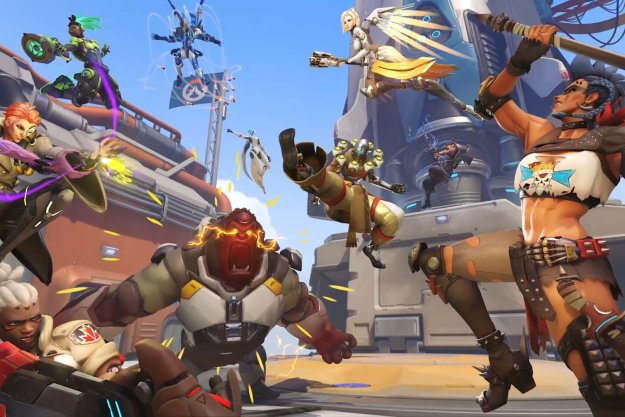Overwatch League, the esports league based on Blizzard’s multiplayer shooter, is taking another page out of the traditional sports league playbook with the arrival of home games next year.
Overwatch League commissioner Nate Nanzer revealed during a panel at SXSW in Austin, Texas, that in the third year of the esports league, its 20 teams will host matches in their home markets across the United States, Canada, United Kingdom, China, France, and South Korea. Currently, the teams are living and playing in and around Burbank, California.
Half of the games for each team will be home games and the other half will be away games. Nanzer noted that the away games will be scheduled in a way that teams will play more games against others that are geographically nearer to their home cities, so that road trips will be more efficient.
The Overwatch League team managers and players said in interviews with Kotaku that one of the major concerns with the move to home cities is the possible burnout, due to the rigors of regular travel in addition to the long practice sessions. Another concern is unexpected trades of team members, which would be harder if the players are transferred between teams in different continents.
Players and fans will get their first taste of Overwatch League home games as soon as this year, though. Rival teams will head to the Allen Events Center in Allen, Texas on April 27 to 28, when the Dallas Fuel hosts a homestand event. The Atlanta Reign will have its own homestand event in July, followed by the Los Angeles Valiant in August.
The Valiant are also the first team to announce their permanent venue, which will be the Microsoft Theater at L.A. Live in downtown Los Angeles. The rest of the venues, as well as the full schedule and ticket information for the home games, will be released later this year.
The addition of home and away games, including the chance to get cheered on by a roaring home crowd, will likely push the Overwatch League further into the mainstream, following the broadcast of matches on channels such as ESPN and the addition of eight teams for season two.
The second season of the Overwatch League has just begun, but it appears that the third season is already shaping up to be a lot bigger.
Editors' Recommendations
- Overwatch 2’s story-driven PvE missions are being abandoned by Blizzard
- League of Legends publisher Riot Games lays off over 500 employees, shutters Riot Forge
- Why Overwatch 2’s show-stealing new hero took an extra four years to debut
- Watch a full match of League of Legends fighting game Project L
- Overwatch 2 is coming to Steam, and more Blizzard games may soon be on the way


